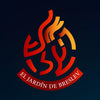
Parasha Bamidbar (in the desert)
“Take a census of the entire assembly of Israel according to their families, according to their houses “fatherly” (Bamidbar 1:2)
This parashah teaches us about the census taken among the children of Israel to determine their number. The entire Torah is intended to teach us how we should behave.
What does the census of the Israelites teach us?
Why is each tribe counted separately and not all the tribes together? Likewise, after all the tribes have been counted and their numbers determined, the members of the tribe of Levi are counted separately.
The Creator commanded: “But you shall not number the tribe of Levi nor number them among the
Children of Israel” (Bamidbar 1:49)
What distinguished them from each other so that they should be counted separately? Furthermore, the number of Levites had to be parallel to the number of Israel's firstborn.
The great commentator Rashi explains this by saying that the firstborn should have been in charge of the service in the Bet Hamikdash, but because they sinned with the Golden Calf their place was taken by the Levites. However, since there were more firstborn than Levites (there were two hundred seventy-three firstborn more than the number of Levites), Hashem ordered to redeem them with five shekalim each, as it is written:
“You shall take five shekels per head… You shall give the money to Aaron and his sons for redemptions of
their surplus” (Bamidbar 3:47-48).
Hashem is Almighty and could have made another two hundred and seventy-three Levites be born so that there would be a parallel number to the firstborn. Why
Why was it necessary that there be more firstborn than Levites?
To answer this question we will remember that the objective of the census was to demonstrate how much the Creator He loved Israel; so that we would understand that for Hashem every Jew is a valuable treasure, a beloved son, as the verse says:
“My firstborn sonThis is Israel” (Shemot 4:22).
And it is also written:
“You are children of the Eternal your God.”
Because the Creator loves us, He watches us and tells us over and over again.
again, as Rashi explains: “Because he loved them he counted them again and again: when he left Egypt,
when they sinned with the Golden Calf, before rest His Presence upon them. That is why the census It was carried out by tribes, to remind us that “Each one of them was unique and important.”
The teaching of this Parasha is as follows: Just as the Blessed Creator loves His children and counts them accordingly, so each of us must love our fellow human beings.
As the Torah says: “Love your neighbor as yourself.”
We must be concerned about all the needs of our fellow men, and be extremely careful not to damage their honor.
Just as Hashem loves His children, so too should each one love and value his neighbor. How is this
reaches this level?
The answer is Bamidbar (in the desert), when one becomes a desert that everyone treads on (i.e., with humility), in this way the ability to honor and value others is strengthened.Just as one who wishes to merit acquiring the Torah must turn himself into a desert, as our Sages said (Eruvin 54a): "SYo becomes himself in a desert, he will receive as a gift the
Torah"
The same thing happens to acquire this level of relationship with others:
It is necessary to become a desert and behave with humility.
Unfortunately, the proud person thinks they deserve everything and thinks that everything was created in their honor, and consequently, they are unwilling to give in or give anything to their fellow man. They get angry over any detail or situation that doesn't seem right to them and forget the great precept of "Hakarat ha tob" (recognizing the good that their neighbor does or has done for them at some point). Like the "ungrateful" person, who does not recognize the good that their neighbor does or has done for them, then it is a lie that they recognize the favors of the Creator, or sooner or later they will end up ignoring them as well.
But when a person feels like a desert and behaves with humility, he is open to thinking about his neighbor, honoring and valuing him.
Dedicated to the healing of all the sick in Am Israel and throughout the world, and to the protection of all those in need.
The Breslev Garden recommends:
